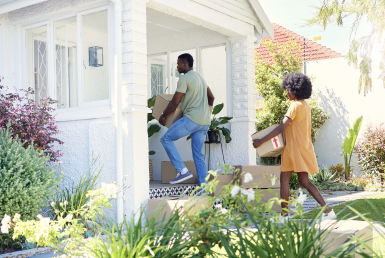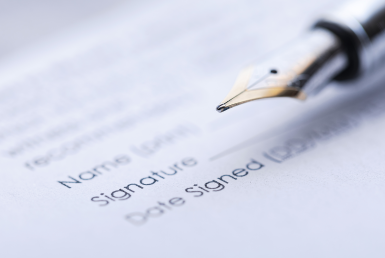New Development or Existing Property?

A prospective Purchaser has several options to consider when choosing their new home. The decision could be whether to buy an existing property, buy land and build from scratch or buy off plan in a development. There are many pros and cons to all three options and in some a financial saving as, when you buy into a new development, transfer costs are a saving because you are buying directly from the Developer rather than a private entity.
Buying off-plan
Buying off plan means buying before the house has been built and basing your decision on the architect’s drawings, the area and the builder and the real estate agents involved. These are often a more affordable option than buying an existing home or building your own home as developers can sell 30 or 40 homes in a set time. You can obviously have finishes that suit your style rather than the taste of a previous owner. This option requires a level of trust that the development will be of the agreed quality and will turn out exactly to spec. This option can either be a dream come true, or fraught with delays and anxiousness. Deposits are generally lower than buying an existing home and bond payments are delayed until construction is complete.
Transfer costs are payable on all existing properties priced over R1 million and this increases exponentially with the price of the property. In new developments, buyers can save on costs where these transfer duties do not apply. This is especially beneficial with more expensive property. The VAT amount is also less as the property is registered under the name of the development company and is thus subject to a tax on the sale.
Off-plan purchasing often means you have a greater selection of options as opposed to what is immediately available on the market. You’re also investing with current pricing for future value. You do need to put down a deposit at the outset and secure the balance of the funding either with a guarantee or a larger deposit and can then use the construction period to save for the ensuing costs or to dispose of your existing home. Developments are current in terms of architecture, finishes, energy,, water-saving measures and other facilities that older developments may not have.
Buy an existing property
Convenience, urgency, and cost are factors when looking at buying an existing property. Once you are pre-approved by your bank, if you require finance, you can shop around, pick out a home, and make an offer. And there’s no waiting for developers to finish the job. A qualified real estate agent can streamline the process by helping you find the right home, guiding you through negotiations, and assisting with the paperwork. Once your offer is accepted, you will be able to close on the deal and then move in within a few months depending on the anticipated transfer date. The convenience and ease of buying an existing home often makes this the most compelling option.
The downside to buying a pre-existing home can mean you may inherit problems the previous owners did not handle, and if you are willing to deal with this for the convenience and speed, it is a good option. You also have control of the established area and you may take possession earlier to suit your needs.
Building a new home
While it doesn’t offer the same convenience as buying an existing house, you can make your dream home a reality. You are much more likely to get exactly what you want. For many, this factor alone is enough to choose to build over buying. You can create a more efficient home that meets newer energy codes and standards for heating, ventilation, and cooling, plus insulation, and air filtration. Better efficiency is good for the environment and can save you money in the long term.

Even though the upfront costs of building a new home can be higher than buying an existing one, it may be easier to recoup your investment when you decide to sell at a later stage. You have more significant profits with the resale of your new home because a newer home is typically more appealing than an older home to prospective buyers. A new home will require fewer repairs and less maintenance.
Practical points to think of are, finding location and the land you love, finding an architect who understands your brief, connecting with a reputable builder and getting the plans passed by the local municipality. There is a considerable amount of paperwork required and an “over budget” amount should always be factored in.
Personal choice will dictate which of these three options are comfortable for you.
FAQs
Is it cheaper to build or buy a house?
It’s six of one, half a dozen of the other given the different kinds of costs you will face so it’s up to you to decide your needs and financial capabilities.




